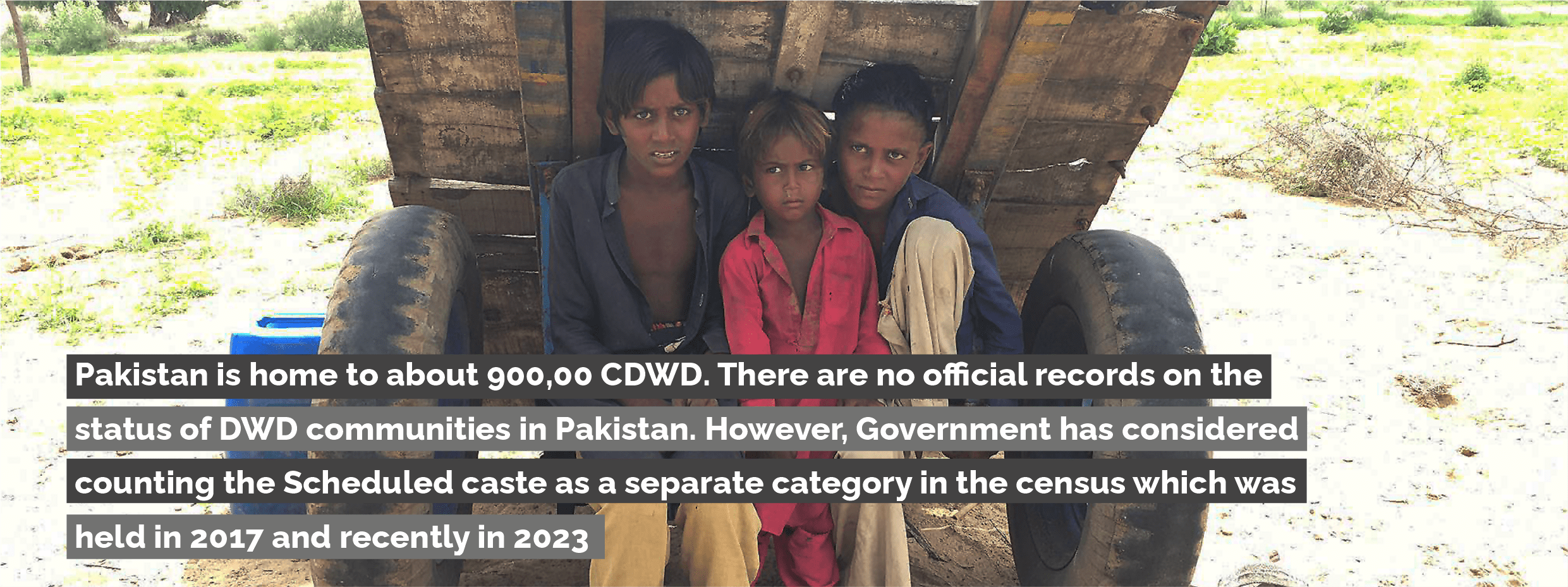
REPORTS

Pakistan through CDWD Lens: Country Report on Status of Communities Discriminated on Work and Descent in Pakistan
CDWD communities are suppressed in various forms, mainly through violence and atrocities ...
PAKISTAN
THROUGH
CDWD LENSE
REPORT
DATA
INFOGRAPHIC
DISCUSSIONS
RECENT ACTIVITIES
NEWSLETTER
SUBMISSIONS
EVENTS
Courtesy Rights Expert Pakistan
Global Slavery Index 2018 ranks Pakistan as 8th of 167 countries in being host to Modern Slavery, with 3.18 million people living in modern slavery. Modern Slavery in Pakistan includes the traditional forms of slavery that continues in the 21st century as well as newer forms of slavery.
Among the slavery practices, Bonded Labour is the most common form and predominantly exists in agriculture, brick kilns, fisheries, construction, carpet industry and domestic work. Majority of these bonded labourers are located in Sindh province.
The various forms of Modern Slavery in Pakistan disproportionately affects the Dalits, including Hindu Dalits and Christian Dalits of Pakistan. The Dalits of Pakistan are primarily Hindu Dalits, Christian Dalits and Dalits categorised separately in government’s scheduled list.
With 96.47 per cent of population as Muslim, the Hindus and Christians are religious minorities in Pakistan. Hindus account for 1.73 per cent of total population or 3.59 million persons, while Christians account for 1.27 per cent of total population or 2.64 million persons as per the 2017 Census. The Scheduled Castes or Dalits are categorised separately in the 2017 Census, accounting for 0.41 per cent or 0.85 million of the total population of Pakistan.
In 1956, the Government of Pakistan declared 32 castes and tribes, the majority of them Hindus, to be scheduled caste (or Dalits), including Kohli, Meghwar, Bheel, Bagri, Balmaki, Jogi, Oad etc. The 1998 Census estimated 0.25 per cent of population as Scheduled Castes or Dalits. This estimate was contested by Dalit representatives and activists indicating that about 90 per cent of scheduled caste population were either missed in counting or were wrongly marked to other categories. (PDSN 2015).


